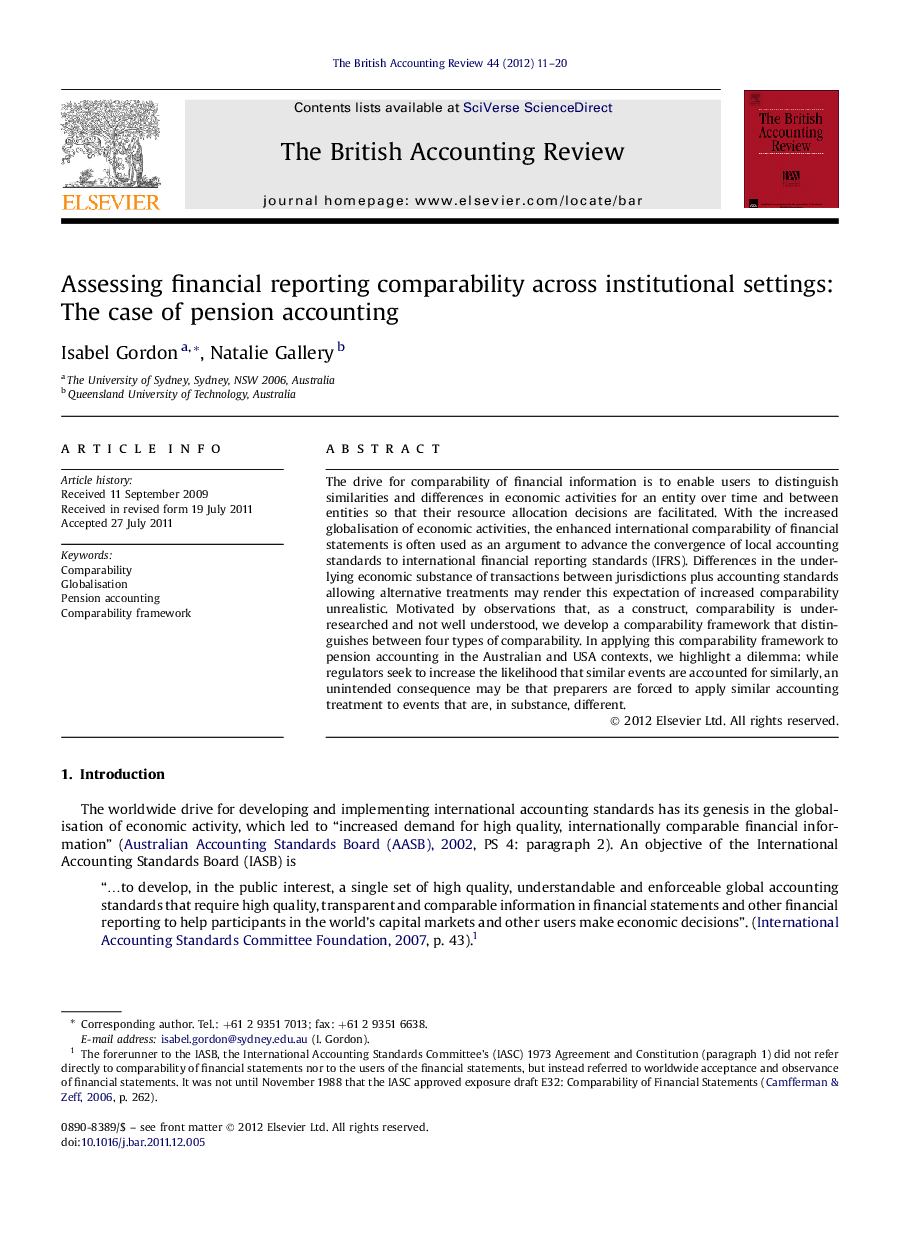| Article ID | Journal | Published Year | Pages | File Type |
|---|---|---|---|---|
| 1004136 | The British Accounting Review | 2012 | 10 Pages |
The drive for comparability of financial information is to enable users to distinguish similarities and differences in economic activities for an entity over time and between entities so that their resource allocation decisions are facilitated. With the increased globalisation of economic activities, the enhanced international comparability of financial statements is often used as an argument to advance the convergence of local accounting standards to international financial reporting standards (IFRS). Differences in the underlying economic substance of transactions between jurisdictions plus accounting standards allowing alternative treatments may render this expectation of increased comparability unrealistic. Motivated by observations that, as a construct, comparability is under-researched and not well understood, we develop a comparability framework that distinguishes between four types of comparability. In applying this comparability framework to pension accounting in the Australian and USA contexts, we highlight a dilemma: while regulators seek to increase the likelihood that similar events are accounted for similarly, an unintended consequence may be that preparers are forced to apply similar accounting treatment to events that are, in substance, different.
